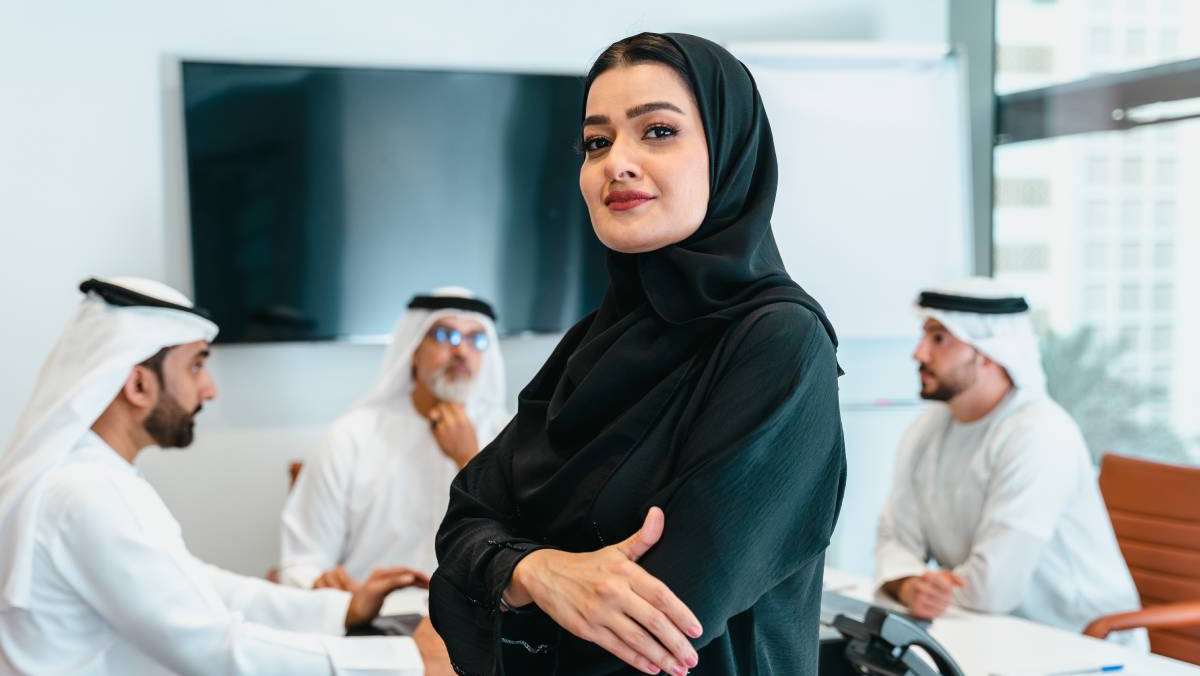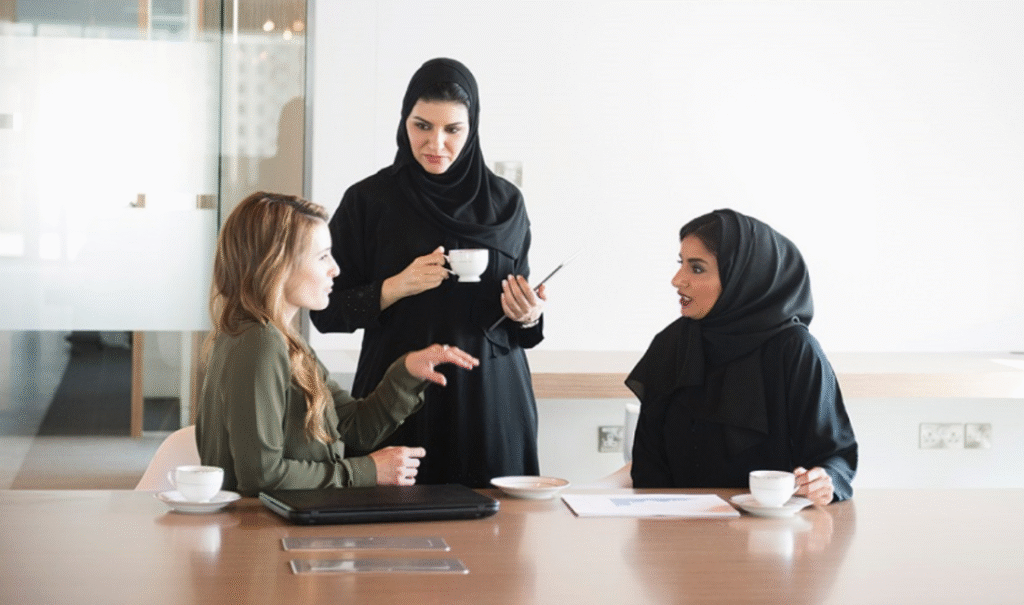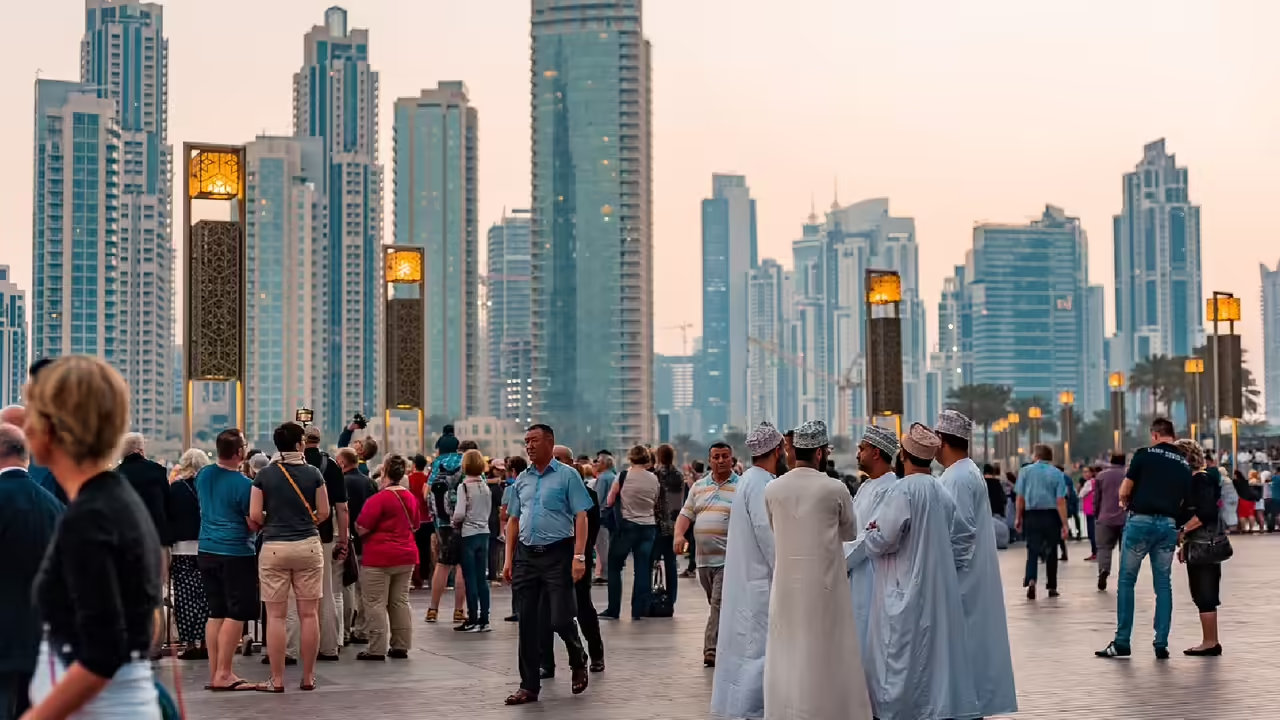Now Reading: Emirati Women Breaking Barriers With Powerful Leadership Stories 2025
-
01
Emirati Women Breaking Barriers With Powerful Leadership Stories 2025
Emirati Women Breaking Barriers With Powerful Leadership Stories 2025

Table of Contents
In recent years, Emirati women have been making headlines for the right reasons. Their stories are no longer limited to cultural traditions or social expectations but highlight leadership, innovation, and success across industries. From media and business to politics and community development, women in the United Arab Emirates are shaping the nation’s future and inspiring generations across the world.
This transformation is not an overnight change. It is the result of decades of effort, vision, and strong national policies that empower women to take leadership positions. Today, Emirati women are not just participants but leaders who influence the direction of entire sectors.
The Rise of Women in Leadership
The UAE leadership has always placed strong emphasis on women’s empowerment. From the early vision of the late Sheikh Zayed bin Sultan Al Nahyan to the current policies of His Highness Sheikh Mohammed bin Zayed Al Nahyan, the goal has been clear: to ensure women play an equal role in building the nation.
Today, Emirati women make up over 50 percent of the UAE’s university graduates. They hold senior positions in government, lead innovative companies, and serve as role models for young girls. Their stories are proof that when women are given opportunities, they rise to the occasion with remarkable results.
Women in News and Media
One of the most powerful platforms for leadership is the media industry. Emirati women journalists, presenters, and editors are not only reporting news but also shaping narratives. Their presence on TV screens, radio stations, and digital platforms has changed how stories are told and whose voices are heard.
Take for example women like Noura Al Kaabi, who has been a strong advocate for media development and cultural growth in the UAE. Leaders like her emphasize that media is not just about reporting facts but about building communities and reflecting values.
Female journalists are also stepping forward to cover sensitive topics, international stories, and local achievements with confidence. Their ability to balance cultural values with global standards makes them unique voices in the Arab media landscape.
Leadership in Government and Policy

Beyond the newsroom, Emirati women are writing history in government leadership roles. The UAE Cabinet has one of the highest percentages of female ministers in the world. Ministers such as Hessa Buhumaid, former Minister of Community Development, and Shamma Al Mazrui, Minister of Community Development and one of the youngest ministers globally, are examples of how the UAE is serious about empowering women leaders.
These leaders influence policies that directly affect citizens and residents, ensuring that community growth includes everyone. Their achievements are often highlighted in international media, presenting Emirati women as modern leaders with global impact.
Business and Entrepreneurship
In business, Emirati women are no less dynamic. Entrepreneurs are launching start-ups in technology, fashion, real estate, and healthcare. Their ventures are not just profit-driven but often focus on sustainability and social responsibility.
For instance, many women-led businesses in Dubai and Abu Dhabi are now recognized across the Middle East for their innovation. These entrepreneurs balance tradition and modernity, showing the world that leadership is not about copying Western models but about creating unique pathways suited to local culture and global trends.
The Dubai Business Women Council and similar platforms have helped many women gain access to mentorship, investment, and networks, proving that women entrepreneurs in the UAE are here to stay.
Cultural Ambassadors
Emirati women leaders are also ambassadors of culture and tradition. While taking on global leadership roles, they maintain strong connections to their identity. This balance has won them respect both at home and abroad.
By wearing the abaya with pride and speaking confidently on international stages, they send a strong message: modern leadership does not mean losing cultural values. This message resonates with women in many countries who wish to combine progress with heritage.
Challenges and Opportunities

Like any transformation, the rise of Emirati women in leadership has faced challenges. Breaking stereotypes, balancing family roles, and proving themselves in male-dominated industries are part of their journey. Yet, the UAE has shown that with supportive policies, education, and role models, these challenges can be overcome.
One major opportunity ahead is the increasing global focus on diversity and inclusion. As the world recognizes the value of women leaders, Emirati women are already ahead of the curve, representing a nation where gender balance is not just a slogan but a practice.
Inspiring the Next Generation
Perhaps the most important impact of Emirati women leaders is the inspiration they provide to young people. When schoolgirls see ministers, CEOs, journalists, and pilots who look like them, they understand that their dreams are valid.
The ripple effect of this inspiration will shape the future of the UAE. A young girl today may become the next minister, media leader, or global entrepreneur tomorrow. This is the power of representation, and Emirati women leaders are making it possible.
Final Thoughts
The leadership stories of Emirati women are not just national achievements; they are global examples of progress. They show how culture, vision, and determination can work together to empower women without losing identity.
As more women continue to rise in the UAE, the nation becomes a stronger voice for equality and leadership worldwide. The journey is ongoing, but the direction is clear Emirati women are breaking barriers, writing history, and inspiring the world with their leadership stories.
Read More:- Shobha Realty Launches Its Most Luxurious Project Yet—Full Details Inside 2025






















